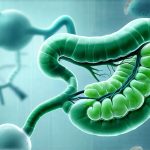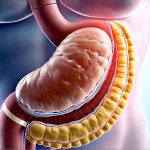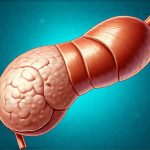The digestive system is often taken for granted until something goes wrong. We rarely think about the complex interplay of fluids and enzymes required to break down food, absorb nutrients, and eliminate waste. This intricate process relies on a delicate balance – specifically, the harmonious coordination between various digestive fluids like gastric juices, bile, and pancreatic secretions. Imbalances in these fluids can lead to a cascade of uncomfortable symptoms ranging from bloating and indigestion to more serious conditions affecting nutrient absorption and overall health. Understanding how these fluids interact and what influences their production is key to supporting optimal digestion and well-being. A healthy gut isn’t just about what you eat; it’s profoundly affected by how your body processes it, and the efficient management of digestive juices plays a central role.
The pancreas, often underestimated, sits at the heart of this fluid balance. It acts as both an endocrine gland (producing hormones like insulin) and an exocrine gland (producing digestive enzymes). Pancreatic output – the release of these vital enzymes – is tightly regulated and responsive to various signals from the body, including hormonal cues and the composition of food entering the stomach. However, many factors can disrupt this delicate regulation, leading to either insufficient enzyme production or, conversely, overstimulation and potential inflammation. Furthermore, the efficiency with which other digestive fluids are produced and utilized directly impacts pancreatic workload; if bile flow is impaired, for example, the pancreas has to work harder to compensate. This interconnectedness emphasizes that a holistic approach is essential when addressing digestive concerns.
The Role of Bile and Its Impact on Pancreatic Load
Bile, produced by the liver and stored in the gallbladder, is crucial for the digestion and absorption of fats. It emulsifies fats, breaking them down into smaller droplets so they can be more easily processed by pancreatic enzymes (specifically lipase). When bile flow is restricted – due to gallstones, inflammation, or dietary factors – the pancreas must work significantly harder to digest fats. This increased workload can lead to pancreatic fatigue, potentially contributing to symptoms like bloating, abdominal pain, and steatorrhea (fatty stools). A deficiency in bile acids also impacts the absorption of fat-soluble vitamins (A, D, E, and K), further compounding the problem.
The relationship isn’t one-way; pancreatic enzymes are necessary for stimulating bile release. Specifically, secretin, a hormone released by the duodenum in response to acidic chyme, signals the pancreas to release bicarbonate-rich fluid and stimulates gallbladder contraction, releasing bile into the small intestine. This reciprocal interaction highlights how disruptions in either system can quickly cascade into digestive issues. Supporting healthy bile flow – through dietary choices like incorporating bitter greens and adequate fat intake (from healthy sources) – is therefore an important component of balancing overall digestive function.
Consider also that chronic stress can impact both bile production and pancreatic enzyme release, further exacerbating imbalances. Stress diverts energy away from digestive processes, prioritizing “fight or flight” responses over nutrient absorption. This explains why many people experience digestive upset during periods of high stress – it’s not necessarily the food itself causing the problem but rather the body’s compromised ability to process it effectively.
Optimizing Pancreatic Output Through Dietary Strategies
A cornerstone of balancing pancreatic output is dietary modification. While there isn’t a one-size-fits-all approach, several strategies can support healthy enzyme production and function:
- Prioritize whole foods: Processed foods often lack the nutrients needed for optimal digestive function and can be harder to break down, placing additional strain on the pancreas.
- Moderate fat intake: While fats are essential, excessive amounts – especially unhealthy fats – can overwhelm the system. Focus on healthy fats like avocado, olive oil, and nuts.
- Include enzyme-rich foods: Pineapple, papaya, mangoes, and fermented foods naturally contain enzymes that aid digestion and may reduce pancreatic workload.
- Avoid food sensitivities: Undiagnosed food sensitivities can trigger inflammation and disrupt digestive processes, including pancreatic function. Identifying and eliminating triggering foods (through an elimination diet or allergy testing) can be beneficial.
Beyond specific food choices, mindful eating is crucial. Eating slowly, chewing thoroughly, and avoiding distractions allows the body to prepare for digestion more effectively. This reduces the burden on the pancreas and improves nutrient absorption. Regularly consuming small meals throughout the day can also be preferable to large, infrequent meals, as it prevents overwhelming the digestive system.
The Importance of Bicarbonate Balance
The pancreas doesn’t just produce enzymes; it also secretes bicarbonate-rich fluid, which neutralizes the acidic chyme entering the duodenum from the stomach. This neutralization is essential for enzyme function – pancreatic enzymes operate optimally in a slightly alkaline environment. Insufficient bicarbonate production can lead to incomplete digestion and inflammation of the intestinal lining. Conditions like chronic pancreatitis or cystic fibrosis can directly impair bicarbonate secretion.
Maintaining adequate hydration is key to supporting bicarbonate production. Dehydration thickens digestive fluids, making them harder to neutralize acidity effectively. Furthermore, certain dietary factors – such as excessive alcohol consumption or a diet high in acidic foods – can disrupt the pH balance of the digestive system. Supporting healthy gut flora through probiotic-rich foods (yogurt, kefir, sauerkraut) also contributes to bicarbonate production, as some beneficial bacteria produce bicarbonate as a byproduct of their metabolism.
Addressing Inflammation and Gut Permeability
Chronic inflammation is a major driver of digestive imbalances. Inflammation in the pancreas itself can impair enzyme production and lead to chronic pain. However, even systemic inflammation – from sources like stress or autoimmune conditions – can impact digestive function. Similarly, gut permeability (often referred to as “leaky gut”) allows undigested food particles and toxins to enter the bloodstream, triggering an immune response and further exacerbating inflammation.
Addressing inflammation requires a multi-faceted approach:
1. Identify and eliminate inflammatory triggers (food sensitivities, stress).
2. Incorporate anti-inflammatory foods into your diet (berries, leafy greens, fatty fish).
3. Support gut health with probiotics and prebiotics.
4. Consider supplements that support gut lining repair (L-glutamine, zinc carnosine).
Healing the gut lining is crucial for reducing inflammation and restoring digestive balance. A healthy gut barrier prevents unwanted substances from entering the bloodstream, allowing the immune system to focus on other threats and freeing up energy for digestion. By addressing these underlying factors – inflammation and gut permeability – you can create a more resilient digestive system capable of efficiently processing food and maintaining optimal fluid balance.


















